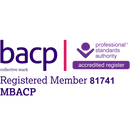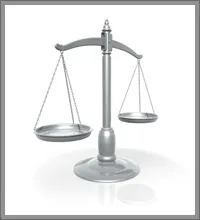
Stress Management & Counselling Services
MBA MSc DipCOT Dip(HE)Coun.

My Services
What is counselling?
Counselling is a “talking therapy”, or in other words, a “conversation” that attempts to help us resolve personal, social or psychological problems and difficulties. Clarifying the aspects of our lives that cause us distress, confusion or lead us to feel blocked, stuck or unfulfilled can help and enable us to make choices about the things that we may wish to change or understand more fully, and also help us to come to terms with those things that we can’t change.
People come to counselling for all sorts of reasons. A significant event, such as bereavement or a relationship breakdown, might be the prompt, or there could be a desire to identify and change unhealthy patterns of behaviour. You needn’t even be clear about your reasons for starting counselling – many people experience a general sense of unhappiness, anxiety or dissatisfaction and use counselling as a way of finding out what these feelings could mean. In short, there are no right or wrong reasons – there merely has to be a willingness to take a closer look at those concerns that we cannot easily make sense of by ourselves.
Counselling can focus on a single issue or a range of concerns, and can be either short or long-term in duration.
What is Stress?
Stress is a normal physical response to events that make you feel threatened in some way. When you sense danger – whether it’s real or imagined – the body’s defences kick into gear in a rapid, automatic process known as the “fight-or-flight” reaction, or the “stress response”.
The stress response is the body’s way of protecting you. When working properly, it helps you stay focused, energetic, and alert. In emergency situations, stress can save your life – giving you extra strength to defend yourself, for example, or spurring you to slam on the brakes to avoid an accident.
The stress response also helps you rise to meet challenges. Stress is what keeps you on your toes during a presentation at work, sharpens your concentration when you’re attempting the game-winning final match point, or drives you to study for an exam when you’d rather be watching TV.

Stress at Work
What is Distress?
Modern life is full of hassles, deadlines, frustrations, and demands. For many people, stress is so commonplace that it has become a way of life. Most people describe stress as an unpleasant experience, for example, being under too much or too little pressure, feeling frustrated or bored, being in situations which they feel unable to handle or control, thinking that they are a failure, experiencing marital disharmony, bereavement or financial difficulties. What they are describing is distress – the bad aspect of stress. This, left unchecked, can lead to poor performance, decreased productivity and ill health. For the individual distress can give rise to headaches, indigestion, frequent colds, neck and back ache and unhappy relationships.
Is Stress an Illness?
No, stress in itself is not an illness. Stress isn’t always bad, in small doses, it can help you perform under pressure and motivate you to do your best. But when you’re constantly running in emergency mode, your mind and body pay the price. It is this prolonged exposure to pressures and challenges that can cause mental and/or physical ill health.
What is Stress Management?
If you frequently find yourself feeling frazzled and overwhelmed, tearful, irritable or short tempered, suffering aches and pains, not sleeping and using alcohol or cigarettes to relax, it’s time to take action to bring your nervous system back into balance.
I can help you to protect yourself from the harmful effects of stress by teaching your how to recognize the signs and symptoms of stress and how to reduce your body’s physiological response to stress.

Pursue a Balanced Lifestyle
Pursue a Balanced Life Style
I can work with you to help you to identify which interventions might be most appropriate for you and your lifestyle. I can help you to understand how to get the right balance between life’s demands and your coping resources. However to get the right balance you would need to re-appraise how you perceive and interact with every day challenges, life events and individual at work and in your social network.


